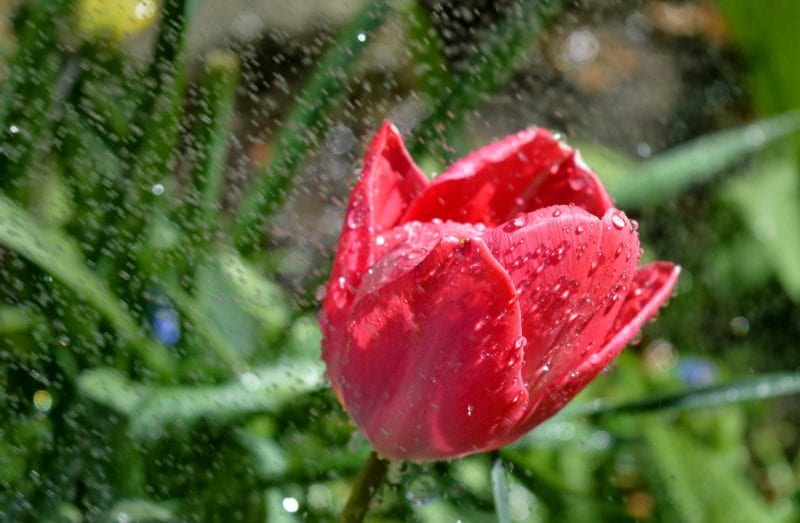Watering a larger garden is not just a lot of work. The water costs must also be kept in mind if the lawn and flowers are to be in top condition. A few hundred euros can quickly add up just because of the water bill.
Rainwater, on the other hand, is completely free. This goes down on your property and can also be used for watering the garden. Thanks to the rainwater, they reduce water costs and your lawn will be just as happy about it.
But the amount of rain is not always evenly distributed. Sometimes it rains for a few days at a time and the garden is literally in water. Then, however, follows a dry period, in which several weeks it rains too little and the natural wet is not sufficient to quench the thirst of the plants.
To better bridge these periods, you should collect the rainwater. In this way, you will always have a reservoir that you can use for irrigation. Below you will learn about the advantages of watering with rainwater, apart from the cost, and what options there are for collecting the water.
Contents
How to collect rainwater
The simplest way to collect the rainwater and use it later is to buy a rain barrel. If it rains, the precious water will run down the gutter and usually just seep into the ground. However, with the rain barrel you have an inexpensive way to collect the water through the gutter and use it later.
Meanwhile, there are not only the simple green rain barrels for sale, but there are fancy designs with useful functions available. For example, the rain barrel could have a water tap and include an overflow protection. This makes the job easier and ensures greater safety.
If you have a larger property area and a larger amount of rain settles there, it makes sense to purchase an underground tank. Instead of collecting the water above ground with a rain barrel, the tank is sunk into the ground. The advantage here is the larger capacity and that the water is protected from external influences. The water remains pleasantly cool, so that germs and bacteria can hardly multiply.
Even more voluminous is the installation of a cistern. While the underground tanks are made of sturdy plastic, the cistern is usually built of concrete. Equipped with an additional filter, the water can be used not only in the garden. It can also be used with a submersible pressure pump or a cistern pump to support the household. In this way, for example, the toilet flush can be operated with the inexpensive rainwater.
Advantages of rainwater
An obvious benefit of rainwater is that it is completely free. You only have to invest once and spend small sums in the maintenance of the tank or cistern, and after a certain period of time the purchase will have paid for itself. With ever-increasing water prices, collecting rainwater is even more worthwhile.
For sensitive plants, the rainwater also proves to be of higher quality. The usual tap water is usually mixed with lime and therefore not optimally suited for all plants. The rainwater, on the other hand, is free of residues and softer. Thus, the plants are better supplied with nutrients and grow healthier.
If you want to think about the environment, the use of rainwater is also advantageous. This water does not have to be transported and purified over long distances by waterworks. Thus, the impact on the environment is much less and the rainwater provides a natural way of irrigation.
Using rainwater to make the garden bloom

Are you annoyed every month by the high water bill that comes once again when it was too dry in the summer?
Then purchasing a rain barrel or installing an underground tank are great ways to use rainwater. Don’t just let the natural water seep into the ground unused, use it to your advantage. Then you’ll be able to supply even a larger garden in a more environmentally friendly way at a lower cost.

